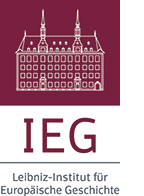Ausschreibungen im Detail
09.04.2019
Reconciliation between Oblivion and Memory: History of a Moving Concept (Europe, 19th c. and first half of 20th c.)
International and Interdisciplinary Conference
Date: 20–22 November 2019
Venue: German Historical Institute, 8 rue du Parc royal, 75003 Paris
Convenors: German Historical Institute Paris; LabEx EHNE – Écrire une histoire nouvelle de l’Europe, Paris; UMR Sirice, Paris; Université de Lorraine/CEGIL, Metz
Partners: German Historical Institute Warsaw; Leibniz-Institute of European History, Mainz
Scientific Advisory Board: Joachim Berger, Anne Couderc, Corine Defrance, Jürgen Finger, Gintarė Malinauskaitė, Ulrich Pfeil
Deadline: 30 April 2019
Call for Papers
Since the end of the 20th century, “reconciliation” has been a kind of generalized “horizon of expectation” in interstate conflicts: Peace does not seem to be enough. Societies and states in post-war situations are committed to the path of “reconciliation”, often exposed to pressure from state and civil society actors on a national and international level. Experts draw up catalogues of good practices that lead to the standardization of processes. The inflationary use of the term “reconciliation” in contemporary debate makes some observers speak disapprovingly of “reconciliation kitsch” (Klaus Bachmann). The expectation or even demand for “reconciliation” is based on the demand for remembrance and rejection of oblivion, the confession of crimes and the recognition of victims, sometimes also on forgiveness. These expectations mirror the particularities of our era and seem in contrast to older ideals of damnatio memoriae that rely on healing oblivion.
We propose to historicize such concepts of “reconciliation” and to analyze them from different perspectives – with a focus on the 19th century and the first half of the 20th century. The practices of rapprochement and political reconciliation after specific conflicts may remain in the background. We prefer to examine the semantics and symbolism of a language of “reconciliation”, in other words: What are the words, gestures, references, images that are used in diplomatic and legal language as well as in political, social or artistic fields? The aim is to reconstruct from various sources the diversity of ideas and representations of “reconciliation”, the actors supporting the reconciliation project and its conditions in the specific historical context. We thus locate ourselves at the interface of a cultural history of politics and international relations on the one hand and historical semantics and a histoire sociale des concepts on the other.
This approach profits from extensive research on other epochs and at the same time reacts to a desideratum: Diplomacy, peace treaties and their representations in the early modern period, in particular the Peace of Westphalia, were comprehensively examined in the past decades. Studies on “reconciliation” in Europe after 1945 are equally numerous, yet they are to be given greater historical depth by examining earlier uses and transformations of the concept. The contributions should therefore concentrate on the 19th century and the first half of the 20th century and question the semantic and conceptual design of “peace”, “friendship”, “reconciliation” and other related concepts.
We will mainly consider interstate conflicts. However, contributions may also consider intra-imperial conflicts (both in Europe and in/with the colonies), conflicts in the context of the disintegration of empires, as well as civil wars that question relations between states and nations.
To what extent does the idea that peace requires “forgetting” or “silence” to restrain the desire for retaliation and revenge still affect the political and diplomatic ideas of the 19th century? When and how did the transition take place from “peace and reconciliation treaties” or “peace and friendship treaties” to peace treaties without reconciliation or even treaties in which culprits or perpetrators were named? Did societies share these goals and evaluations? What role do civil society, national or international organizations play in promoting alternative ideas of how peace should be created and secured? How are the use of the term “reconciliation” by pacifist, feminist and religious circles and the simultaneous development of a first “humanitarian diplomacy” connected? To what extent were the demands for reconciliation and the concept of “reconciliation” changed by war? This is particularly true of the interwar period, since – only temporarily interrupted by the First World War – in the 1920s initiatives for peace, reconciliation and a rhetorical disarmament were launched at various levels.
The transition from the 1920s to the 1930s marked another turning point. The concept of “reconciliation” was also adopted by fascist and nationalist circles in their struggle against Bolshevism and then by the actors of collaboration with the Nazi regime throughout occupied Europe. How were the terms “reconciliation” and “cooperation” articulated in this context?
Finally, it is necessary to analyze the temporary rejection of the concept of “reconciliation” after 1945, as it seemed unsuccessful and discredited. In which milieus were active efforts made to revive the concept? What ideas of the connection between past, present and future were associated with the concept of reconciliation? Is the goal of reconciliation to prepare the future by turning away from the past, or is it to face the past together to build the future? In view of these questions on the last transformation of the concept, the end of the period of study is chosen at the threshold of the 1960s.
The aim of this event is to bring together historians as well as researchers from the fields of law, political science, literature, art history, theology and the digital humanities in order to raise the question of the chronologies of “reconciliation” in the 19th and 20th centuries in an interdisciplinary debate. This call is also and especially aimed at young academics.
Proposals must be sent to Jürgen Finger (JFinger@dhi-paris.fr)) by 30 April 2019. Please submit a title proposal, an abstract of 2,500 characters (in German, French or English) and a short bio-bibliographical note. The working languages of the conference are German, French and English.
Application details (pdf)


